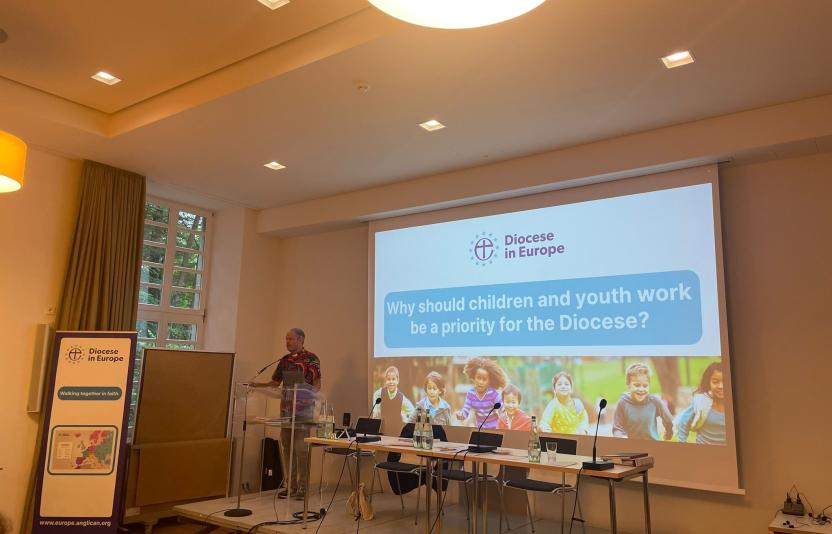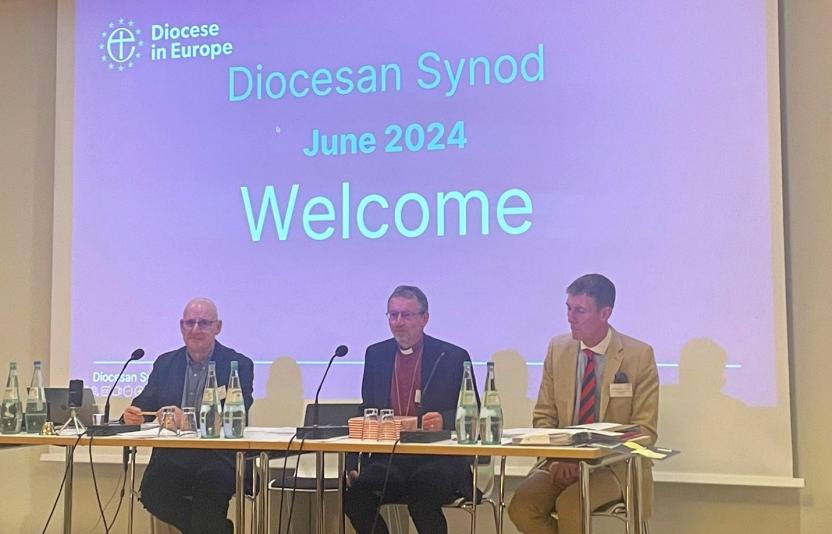Gibraltar Archdeaconry Synod 2020
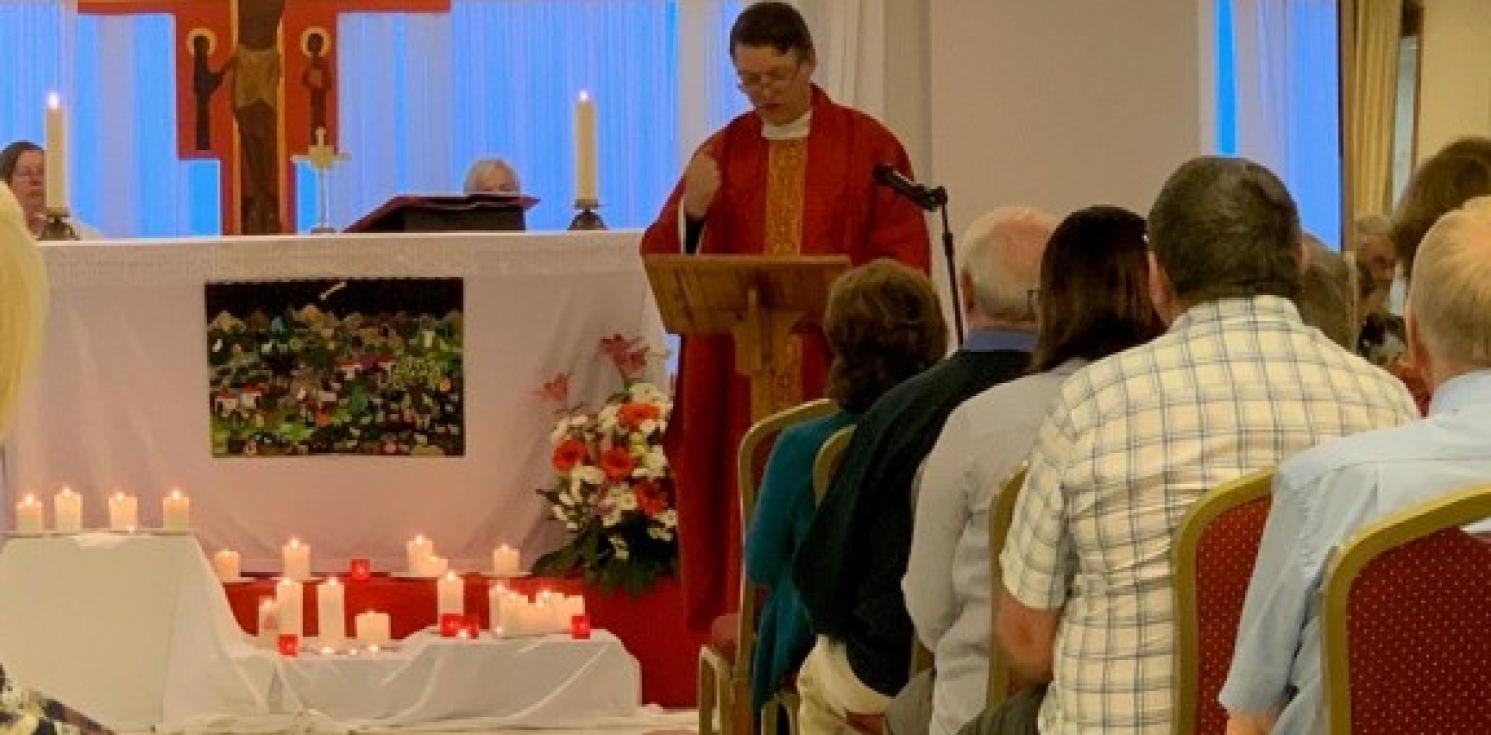
In sunny, temperate conditions that might make other parts of the diocese envious, about 120 synod delegates and guests gathered at La Zenia in Spain for the annual Synod of the Archdeaconry of Gibraltar from 27 to 31 January. The theme for the Synod was “Caring for Creation,” which was carried through worship, preaching, keynote address, Bible study and plenary sessions.
Bishop David Hamid set the tone at the opening Eucharist, admitting a fascination with cosmology, tracing the origins of all matter and the emergence of humankind to the initial ‘big bang.’ Echoing the words of Joni Mitchell a few decades ago, he pointed out that we are all stardust. Incarnation means that God has bestowed blessing on all of the cosmic order, that action against other living creatures or the environment is a sin against God, and that care for creation is at the heart of Christian vocation.
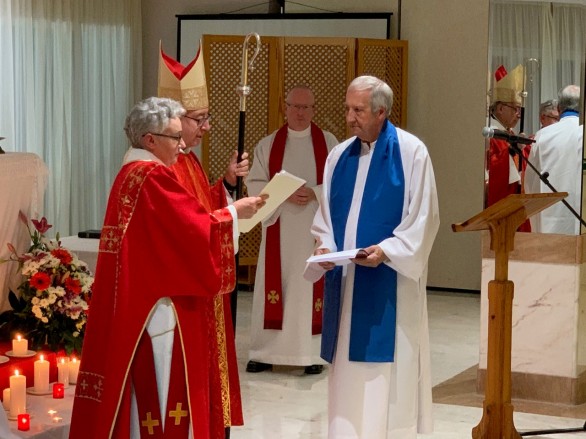
Clare Amos led Bible study and continued with the theme. Humanity is created in the image of God, and so our relationship with one another and with creation is sacred. The first chapter of Genesis has been used (or misused) to the end that western Christianity has been described as the most anthropocentric religion the world has seen - largely because of the misunderstood idea of dominion. Yet creation has not been created for humanity. Genesis 2 paints a rather different picture - leaving a creative tension between humanity as the image of God and humanity as dust-creature in terms of humankind’s origins.
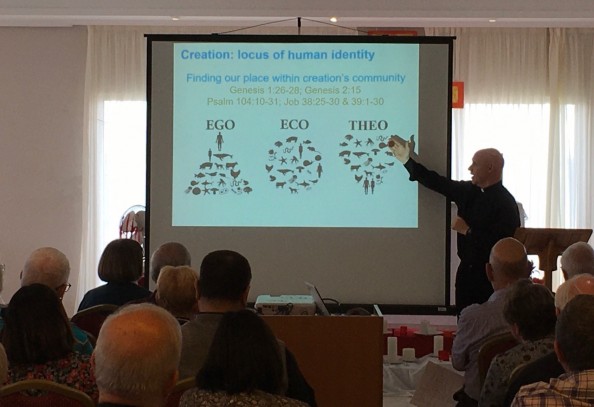
Dave Bookless, from A Rocha, was the keynote speaker. He led Synod on a biblical and theological journey from creation as the locus of divine blessing, through the revelation of God in and to the created order throughout salvation history, to the understanding of creation as oikos, the family home or household of humankind. The kingdom of God is creation healed through Jesus, not only with healing of the relationship between God and humanity but also between humanity and the created order. Dave suggested that the Church needs to rediscover the liturgical connection with the land through such celebrations as Rogation-tide and harvest so that we can rediscover our place within the mission of God. To this end, he and Diocesan Environmental Officer Elizabeth Bussmann both recommended that chaplaincies within the Archdeaconry should embrace the eco-Church programme, which originated as a project of A Rocha.
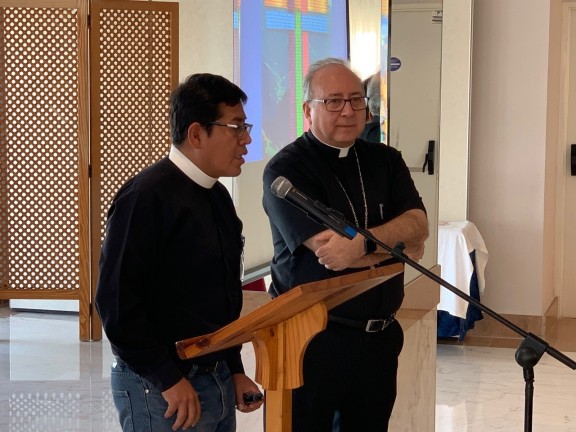
There was other business at this Synod. Bishop David gave a concise recap of the developments in the Church of England’s approach to human sexuality, and the complexities arising from the intersection of social, legal and theological considerations. Damian Thwaites reminded Synod members that chaplaincies can be instruments of care and compassion for those affected by Brexit, as well as outlining key diocesan communications priorities this year. Andrew Caspari outlined the diocesan budget and the priorities for investment of resources across the diocese, which are: ordained ministerial development and support; developing lay ministry; youth; the future of the earth; poverty and social justice; developing a digital diocese. Grace Fagan, newly appointed Diocesan Safeguarding Administrator, outlined the current status and impending plans for diocesan safeguarding policy and training.
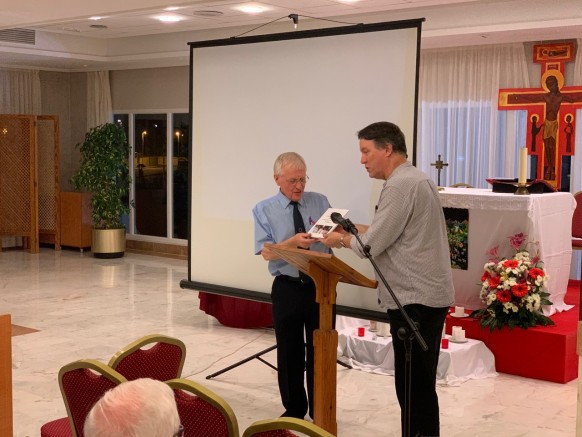
This Synod marked an important transition. Newly installed Archdeacon of Gibraltar (as well as Italy and Malta), David Waller, chaired Synod for the first time. Geoff Johnston, who retired from those two positions upon his retirement last November, was present to recap his final year in office, to receive the thanks of Synod on behalf of the whole Archdeaconry, and to be presented with the gift of a book of photographs recalling his ministry in the Archdeaconry.
In the closing Eucharist, David Waller drew upon the image of Jesus sleeping through, and then stilling the storm, to challenge delegates to ponder the question that Jesus asked in that instance: “Where is your faith?” In the storms of life, we face chaos and unknown forces, and it can be easy to become demoralised. We might also consider that we are not the only ones who face storms: there are others in the same boat. In the face of struggles, the only way to find calm in the boat is to look to the face of Jesus and to place Christ at the centre. As we move ahead, recognising our responsibility to care for creation as a community of faith, we all need to ask ourselves: “Where is your faith?” The power of the creator’s love is greater than whatever storms afflict us. And as Dave Bookless had said earlier, God’s love contains the promise of a renewed world that is a reason for hope, joy and praise.

